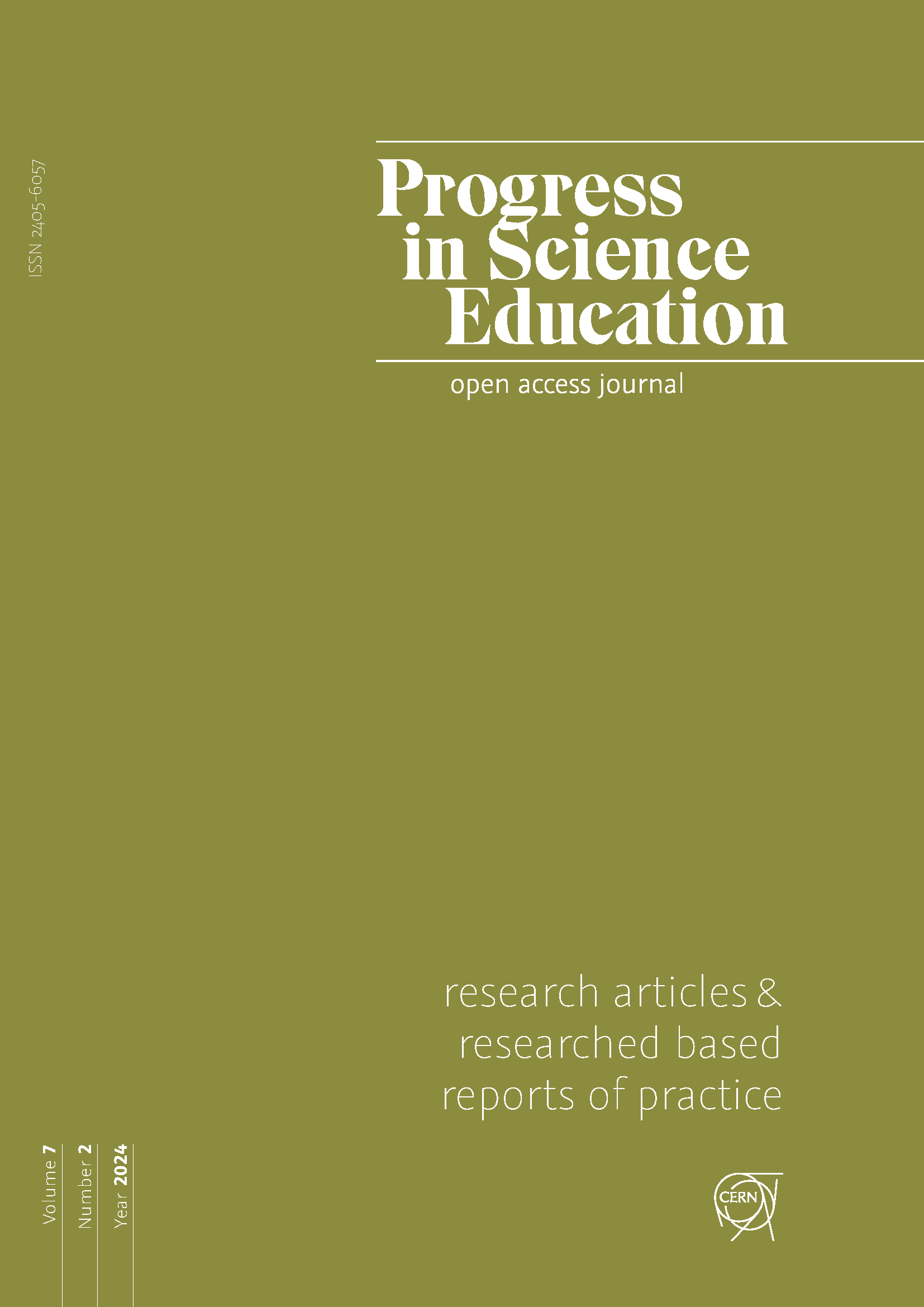Why Austrian students are (not) interested in chemistry education
An interest study concerning chemical content and experimental activities
DOI:
https://doi.org/10.25321/prise.2024.1495Abstract
Background: Over the last decades, several international studies have addressed the issue of student interest in science and chemistry education. The findings of these studies describe the phenomenon of declining interest over the school career. However, older as well as more recent studies show that everyday references and independent experimentation can promote interest in chemistry education. Students themselves stress the importance of everyday references in chemistry education.
Purpose: Currently, there is no actual interest study that deals with the interest of Austrian students in relation to everyday references and experimental activities in chemistry education. This study aimed to contribute to the research field of interest studies in chemistry education by analyzing the interest of Austrian students in chemical content with relation to everyday references and experimental activities.
Sample/setting: A total of 621 lower (67.1 %) and upper (32.9 %) secondary school students from Austria partici-pated in this study. The students were informed on the use of their data for this study; ethical guidelines were followed. An online questionnaire was used and sent to the schools. The questionnaire was then forwarded by the schools to the students.
Design and Methods: The questionnaire consists of two parts: (1) personal data, such as gender, school level and whether the school has its own laboratory lessons for chemistry education and (2) a total of 47 items on interest in chemistry content with and without everyday references as well as interest in experimental activities and frequency of experimental activities in chemistry education and 4 items on chemistry-related self-concept. The interest in chemical content with or without everyday references was analysed descriptively and an analysis of variance was calculated. The impact of chemistry-related self-concept, gender, school grade and lesson type on the interest in chemical content with and without everyday references was analyzed using a path model and the interest in experimental activities was analyzed descriptively.
Results: The findings show that learners are significantly more interested in content with everyday references (strong effect) than in content without everyday references. Furthermore, this study showed that independent experimentation is of greatest interest for students, but at the same time occurs relatively rare in chemistry lessons. Less popular, on the other hand, are abstract activities such as formulating reaction equations in the context of experiments. Results also reveal that chemistry-related self-concept is a moderate/strong predictor for the interest in chemical content for both with and without everyday references. The other predictors (gender, school grade, lesson type) each only have a weak influence on interest in this content. However, results reveal that interest in chemistry content declines over the school career, just as other studies have previously found a declining interest in chemistry/science education.
Conclusions: The study provides new and current insights into the interest of Austrian students in chemical content with and without everyday references in chemistry education. Furthermore, the study shows which experimental activities students are most interested in and how often experimental activities occur in chemistry lessons. One way of counteracting the loss of interest could be to teach with as much of the focus on everyday life as possible, considering the interests of female and male students when choosing the everyday reference and enabling the students to experi-ment independently, preferably with reference to everyday life, as often as possible. After all, this is what summarizes the greatest interests of students in chemistry education in this study. However, further research will be required on how to counteract this loss of interest over the school career.
Keywords: interest in chemistry education, interest study, everyday references, experimental activities
Downloads
Published
Issue
Section
License
Copyright (c) 2024 The Author/s

This work is licensed under a Creative Commons Attribution-NonCommercial-ShareAlike 4.0 International License.
Authors who publish with this journal agree to the following terms:
- Authors retain copyright and grant the journal right of first publication with the work simultaneously licensed under a Creative Commons Attribution License that allows others to share the work with an acknowledgement of the work's authorship and initial publication in this journal. The applicable licence is https://creativecommons.org/licenses/by-nc-sa/4.0/, which means
You are free to:
Share — copy and redistribute the material in any medium or format
Adapt — remix, transform, and build upon the material under the following terms:
Attribution: You must give appropriate credit, provide a link to the license, and indicate if changes were made. You may do so in any reasonable manner, but not in any way that suggests the licensor endorses you or your use.
NonCommercial: You may not use the material for commercial purposes.
ShareAlike: If you remix, transform, or build upon the material, you must distribute your contributions under the same license as the original.
Authors are able to enter into separate, additional contractual arrangements for the non-exclusive distribution of the journal's published version of the work (e.g., post it to an institutional repository or publish it in a book), with an acknowledgement of its initial publication in this journal.
Authors are permitted and encouraged to post their work online (e.g., in institutional repositories or on their website) prior to and during the submission process, as it can lead to productive exchanges, as well as earlier and greater citation of published work (see The Effect of Open Access).

